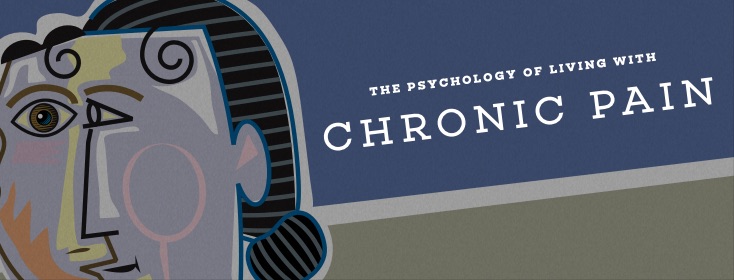The Psychology of Living With Chronic Pain
A shocking 67% of people with multiple sclerosis know what it is like to live with chronic pain. There are many different causes of MS pain such as muscle spasms, MS “hugs”,migraines, and trigeminal neuralgia. Pain comes in all shapes and sizes, and is unique to each and every person. Whether pain is acute or chronic, it can have a severe impact on our physical and mental health. Over time chronic pain can lead to anxiety, depression, and social isolation.
How can we cope with MS pain?
There are medications that can help but sometimes they can only partially relieve symptoms, which is why many patients also seek out other ways to control pain. Massage, acupuncture, meditation, and psychological support have helped many patients control their pain more effectively. Studies have also shown that cognitive behavioral therapy can help control pain. Learning strategies to mentally cope with pain can help empower patients to take back their lives, and can reduce the impact that pain has on their daily activities.
Taking an active role in pain management
Despite the many different approaches there are to pain relief many of us still have to cope with some degree of pain on a regular basis. It is easy to be frustrated, even angry when faced with a seemingly hopeless situation. But psychologists such as Caryn Seebach are stressing the importance of taking some of the control back in order to live our lives, despite our MS. They propose that if we can become active participants in our pain relief strategies then we can become more empowered, and ultimately improve our daily lives.
Treating our emotions and behaviors too
Neurologists and clinicians are experts in pharmacology and in chemically managing pain, but the patient is the expert when it comes to what works for them and what doesn’t. We are learning that when we shift the focus from treating not only physical pain, but the emotional effects of pain as well, we see better results. Seebach proposes that living in the present and resisting the tendency to worry about the future or live in the past can help us reduce the impact that pain has on our quality of life. But living in the present is of course easier said then done. Like every other behavior, it has to be practiced and learned.
You may need professional help
I would love to live more in the moment, but the truth is I’m constantly thinking of the future. This is especially true when I am worried or anxious about something. Once I start worrying I can’t turn it off, and I’ll think about it constantly until I can find a solution. Enlisting professional advice and guidance on letting go of anxieties is something that so many of us resist, but studies are showing that it can make a big difference.
What is learned helplessness?
A psychological concept called learned helplessness can help explain the effect that chronic pain can have on a person. There is a classic example based on an experiment that took place on three groups of dogs. The first group was kept in a harness for a period of time and then released. The second group was harnessed and given electrical shocks that could be stopped if the dogs nuzzled a button with their noses (I know, poor dogs!). The third group was harnessed and shocked with no way of stopping the shocks. Next, the three groups of dogs were put in an enclosure. Half of the enclosure was electrified, the other half was not, and the two sides were separated by a low wall. The first and second groups of dogs quickly hopped over the wall to the safe side, but the third group did not. These dogs had learned that they had no control over the painful shocks, and they did not think there was any way that they could escape so they didn't even try to.
How it applies to MS
Similarly, people can display learned helplessness. Examples include chronic illness, depression, substance abuse, and even poor academic achievement. With multiple sclerosis there are so many things that we may feel helpless to control, which can lead to depression, anxiety, and ultimately disease progression. We may not be able to turn off our pain with a button, but psychologists say realizing that we are not helpless and being active participants in our pain management can improve our mental health.
The power of mindfulness
Seebach says a key component to coping with chronic pain is to practice “mindfulness”. Mindfulness is the act of focusing on the present and not worrying about the past or the future. It is taught through cognitive behavioral therapy and it aims to help the person focus on things that can be controlled. These things may include building a good support system, seeking alternative therapies like massage or acupuncture, or using diet and exercise to improve your symptoms. The core to her theory is that we must let go of what we cannot control, and commit to finding ways to live our lives anyway.
Partner with your doctor
Finding effective coping mechanisms can help reduce the impact that pain has on our daily lives, even if medications and therapies don’t allow us to live completely pain-free. Seebach stresses that you and your doctor are partners in your care, and should set goals with one another. Though we may have to learn to live with our pain, we most certainly are not helpless and we do not need to resign to it.
What are your strategies for living with your MS pain?

Join the conversation